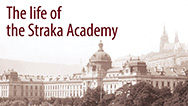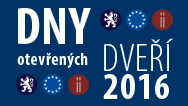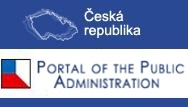Exhibitions
26. 2. 2010
Exhibition: The Paths of Czech Constitutionality
Hrzán Palace
Loretánská str.177/9, Prague 1
26 February 2010 – 7 March 2010
10.00 a.m. – 17.00 p.m.
Admission free
Those interested in group inspection of the exhibition can make a reservation at telephone no.:
+420 296 153 200
It is a matter of historical and constitutional research what it is possible to regard as a constitution. As far as commencement of the Czech statehood, it is possible to find number of essential documents which influenced the structure of the state and the way of government both in the Přemyslide princely times and then in the times of the Czech Kingdom. The first attempts to write down the existing custom law and constitution of relations between the king and aristocracy appeared in the 13th century; nevertheless, they were not successful and no relevant information has been preserved. Also the Charles IV tried to issue a land order, however not even such a powerful ruler as he was managed to enforce its draft code of law, the name of which was Maiestas Carolina, against the will of aristocracy, and he finally repealed it under false pretences that it had been burned. However, the duplicate of the draft together with the repealing document have survived and the State Regional Archives in Třeboň kindly lent it us.
The Hussite revolution and disputes over the Czech throne markedly weakened the king's power, and the aristocracy gained the influence on the state administration. At the instigation of the aristocracy the Vladislav's Land Constitution was written down and it was printed in 1500 in Prague. One of five surviving prints of that fist codification of the land law has lent the Library of the National Museum. After the outbreak of the rebellion of the estates on 3 July 1619 the constitution known as the Czech Confederation was adopted. As the first of all the existing constitutional documents it was valid for all the countries of the Czech Crown Lands and changed the Czech State into a federation of estate lands, the unity of which was secured not by the ruler but by the Constitution itself.
However the defeat of the rebellion markedly strengthened the power of the ruler who issued in 1627 the Renewed Land Constitution, provisions of which with certain amendments, were in force in Bohemia until 1848 when the constitutionality were declared in the Austrian Monarchy. This period is represented at the exhibition by prints of the Austrian constitutions.
Documents which played significant role in the course of establishing Czechoslovakia in 1918 are exhibited as well – manuscript of the draft of the Washington Declaration written by Tomáš Garrigue Masaryk and the 1st law of the Czechoslovak Republic of 28 October 1918 written by Dr. Alois Rašín with signatures of members of the National Committee. The main exhibit of times of the First Czechoslovak Republic is the Constitution of 1920. In addition the socialist constitutions of 1948 and 1960 are presented at the exhibition and finally the present constitution of the Czech Republic adopted in 1992.
The exhibition is held under the auspices of the Prime Minister of the Czech Republic Jan Fischer and it has been prepared by the Office of the Government of the Czech Republic and the National Archives in cooperation with the National Museum, the archives of the Chamber of Deputies of the Parliament of the Czech Republic, the State Regional Archives in Třeboň, the archives of the Office of the President, the Masaryk's Institute and the archives of the Academy of Sciences of the Czech republic.




